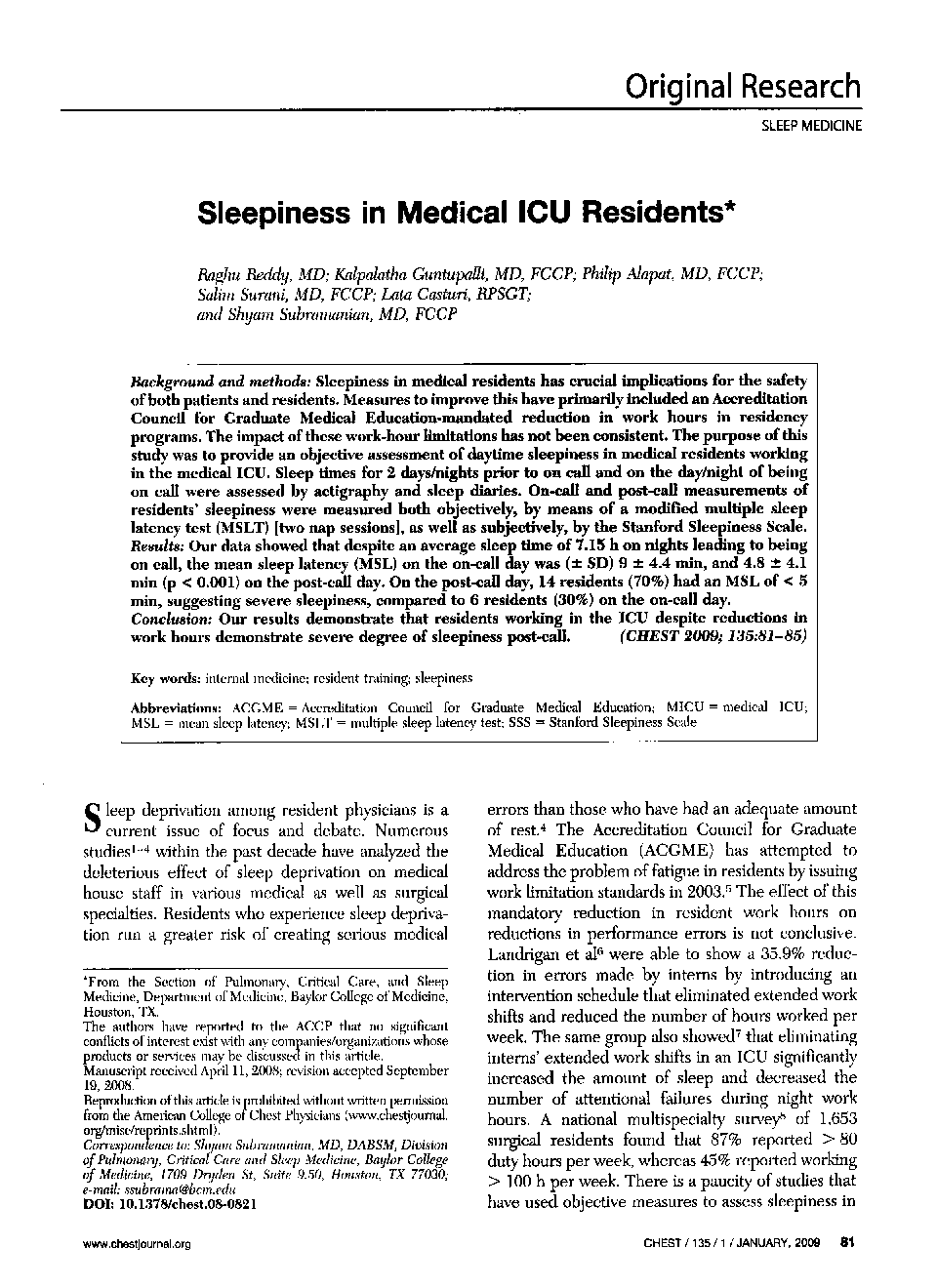| Article ID | Journal | Published Year | Pages | File Type |
|---|---|---|---|---|
| 2902534 | Chest | 2009 | 5 Pages |
Background and methodsSleepiness in medical residents has crucial implications for the safety of both patients and residents. Measures to improve this have primarily included an Accreditation Council for Graduate Medical Education-mandated reduction in work hours in residency programs. The impact of these work-hour limitations has not been consistent. The purpose of this study was to provide an objective assessment of daytime sleepiness in medical residents working in the medical ICU. Sleep times for 2 days/nights prior to on call and on the day/night of being on call were assessed by actigraphy and sleep diaries. On-call and post-call measurements of residents' sleepiness were measured both objectively, by means of a modified multiple sleep latency test (MSLT) [two nap sessions], as well as subjectively, by the Stanford Sleepiness Scale.ResultsOur data showed that despite an average sleep time of 7.15 h on nights leading to being on call, the mean sleep latency (MSL) on the on-call day was (± SD) 9 ± 4.4 min, and 4.8 ± 4.1 min (p < 0.001) on the post-call day. On the post-call day, 14 residents (70%) had an MSL of < 5 min, suggesting severe sleepiness, compared to 6 residents (30%) on the on-call day.ConclusionOur results demonstrate that residents working in the ICU despite reductions in work hours demonstrate severe degree of sleepiness post-call.
